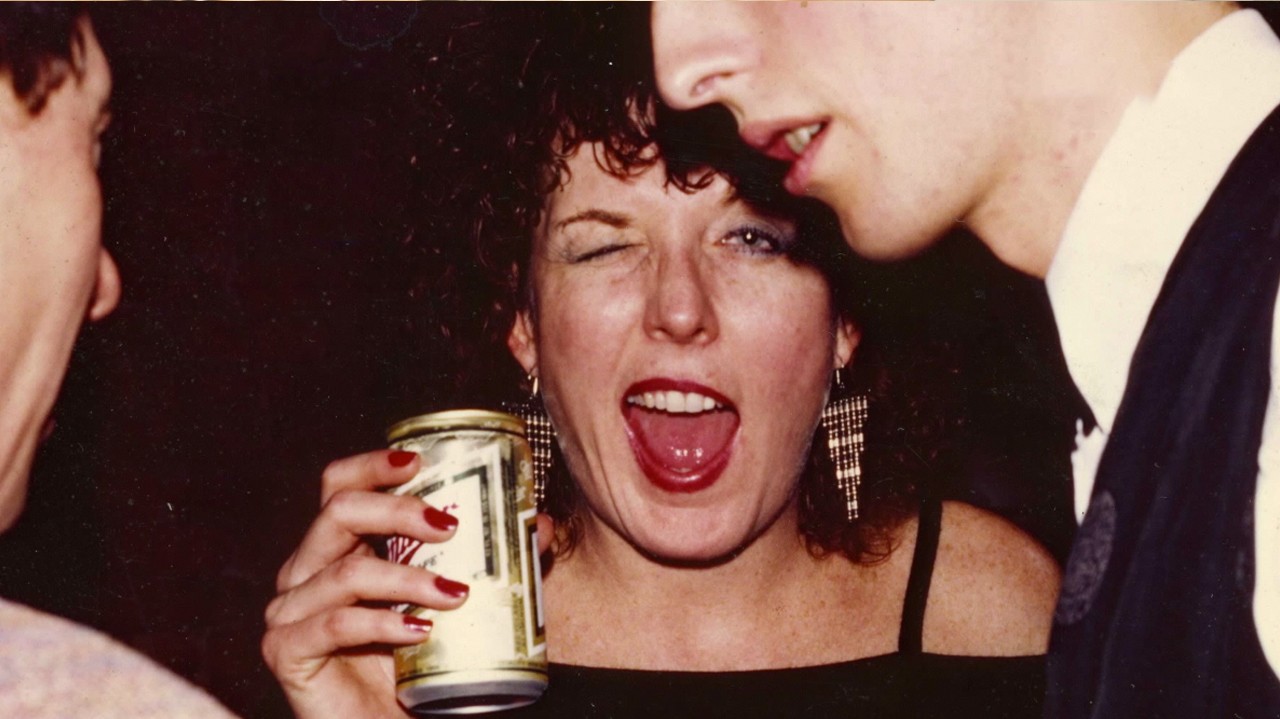We tend to think of other people's saliva as objectively gross: We're not ecstatic when some hot person leaves backwash in our drinks, we don't get tingly when spit flies out of someone's mouth mid-sentence and lands on our lips, and it is strictly repulsive when men hock loogies all over the sidewalk like it's normal. But take that same man, put him in some cuffed Dickies and whatever the hell just dropped at Supreme, and he'd likely have no problem getting someone else to let him spread his saliva around their mouth all night long.Making out is weird. But are we just freaky perverts or is there an innate, biological reason we look at other humans and think, "Let's mix saliva!"?Unfortunately, researchers are split on the issue, meaning we don't have a concrete answer yet. Some believe that kissing with tongue is a natural evolutionary progression that aids in mate choice. Others, citing cultures where kissing with tongue is not only absent but looked down upon, believe making out is a specific learned behavior that's gained popularity due to media consumption and globalization.
Watch: Artist Marilyn Minter on Depicting Female Sexuality
A 2015 research report which Volsche co-authored found that the romantic-sexual kiss—aka kissing with tongue—is only present in 46 percent of cultures. Before this study, it was speculated that around 90 percent of cultures engaged in this kind of kissing. When I pointed this out to Dr. Fisher, she explained, "Those people that don't actually kiss [with tongue] often nip at the face, they'll lick around the face, they'll snuggle face to face. They've just got a variation on basic kissing."Because kissing with tongue is mostly practiced in large, post-industrial countries like the US, the number of people who French kiss is actually higher than the number of people who don't, Volsche points out.In cultures where making out isn't practiced, people often react with disgust when they see or hear about the behavior, Volsche says. And even as a person socialized in the West—where I've been bombarded with images of beautiful people with their tongues down each other's throats since birth—I get this. Making out seems antithetical to every biological urge that protects us from disease, and perhaps that's why it's so difficult to understand why we do it."Looking at who does and doesn't kiss, I think it really does come down to access to hygiene and self care," says Volsche. In other words, it's a lot easier to entertain the idea of making out with the kind of gross guy at the bar when you know you have access to Listerine.Volsche also points out that extended foreplay as a whole is less present in both human history and present day foraging societies. "The Aka pygmy [an ethnic group that doesn't practice tongue-kissing] actually talk about night's work [sex], and while they acknowledge that night's work is enjoyable, they are more about quantity than quality."
Advertisement
While the scientific world's "nature versus nurture" debate around swapping spit is lively, I found that the average person who makes out (or at least the average VICE employee), has given the act far less thought.Taji, a shooter/producer at VICE, says his reasons for initially engaging in making out were "to compete with [his] friends, and be cool because [he] knew people were doing it. Also for fun." When asked why she started making out with people, Cheryl, a freelance writer, said, "Because that's what TV told me to do, and that was the ultimate goal to prove I wasn't ugly." Dan, a writer at VICE, however, has a more nuanced idea of why we make out: "Two people putting their tongues together is the quickest, most intimate way to connect with someone," he says.Read More: Why We Like Putting Our Tongues Inside Other People's Mouths
Advertisement
Though anecdotal experiences and opinions of random VICE employees may be relatable, we decided to call on two researchers—each with opposing hypotheses on why we're sometimes inclined to explore each other's mouths with our tongues—to further understand this behavior."I think it's intrinsic," says biological anthropologist Dr. Helen Fisher. "We aren't the only animal on the planet that kisses with an open mouth. Chimpanzees have kissed a person; an elephant will put their trunk into the open mouth of somebody that they're courting; all kinds of birds will tap their bills together; other animals lick the entire face, look at dogs. We do it too." Dr. Fisher also points to mouth feeding as evidence that mouth to mouth exchange is a natural inclination for many mammals.Professor of Cultural Anthropology at the University of Nevada, Las Vegas, Shelly Volsche, however, believes that it's not so simple. In terms of mouth feeding, she says, "There's an innateness there in the sense that it is a natural behavior, however, to use it in a sexual context or romantic context—it's almost like we took an innate behavior that evolved for one reason and then co-opted it for this other behavior.""Two people putting their tongues together is the quickest, most intimate way to connect with someone."
Watch: Artist Marilyn Minter on Depicting Female Sexuality

A 2015 research report which Volsche co-authored found that the romantic-sexual kiss—aka kissing with tongue—is only present in 46 percent of cultures. Before this study, it was speculated that around 90 percent of cultures engaged in this kind of kissing. When I pointed this out to Dr. Fisher, she explained, "Those people that don't actually kiss [with tongue] often nip at the face, they'll lick around the face, they'll snuggle face to face. They've just got a variation on basic kissing."
Advertisement
Some researchers believe that making out may also have to do with our hormone levels and how they can impact our partners. "The hypothesis is that there's a certain amount of testosterone in saliva, and it could be that the man is trying to inject the saliva into the woman, giving her more traces of testosterone which would help push up sex drive," says Dr. Fisher. (Though, this fails to account for any making out that excludes men entirely.)Even beyond hormones, Dr. Fisher is convinced that open-mouthed kissing is key to deciding who we'll partner up with. "I think it plays an important role in mate choice," she explains. "The first kiss really can be either an escalation point or a breaking point."Though Dr. Fisher is on the side of nature in the romantic kissing debate, she doesn't believe that the effects of culture on this behavior are negligent. "The human brain is flexible, and we can inherit some basic behavior patterns that culture can sculpt and change," she says. "I'm going to hang with the group that believes that kissing is natural, but there's a biological and cultural payoff."In "Unscrewing Ourselves," Broadly's 2017 Sex Month, we explore the state of sex ed today by highlighting the individuals and ideas changing our sexual health for the better. Read more from this series here.
